While it’s important for women to assess their endocrine function and maintain healthy blood glucose levels during pregnancy, is the glucose tolerance test the best way to do that?
Gestational diabetes mellitus (GDM) is an increasing problem among pregnant mothers in the U.S., affecting an average of approximately 7% of all pregnancies – over 200,000 cases annually. GDM significantly increases the risk of preeclampsia, premature and cesarean delivery, shoulder dystocia and other birth injuries, newborn hyperinsulinemia, transfer to neonatal intensive care, and newborn jaundice.
The current U.S. standard of care dictates that all pregnant women should be screened for GDM during weeks 24-28 of gestation via the glucose challenge test (GCT), in which a 50-gram glucose solution is administered and blood glucose is measured after 1 hour. Patients with a GCT result of >=130 mg/dL are then referred for the “gold standard” oral glucose tolerance test (OGTT), in which fasting blood glucose is measured and again at 1, 2, and 3 hours after a 75-gram or 100-gram solution is consumed. Patients with abnormal results in 2 or more of the 4 readings are then officially diagnosed with GDM. But how accurate are these tests? This meta-analysis of 26 studies found that the initial GCT screening identified only 76% of GDM cases, with a significant false positive rate of 15-23% of all women tested. Why is this significant?
Risks associated with Glucola drinks
Much has been written about the troubling ingredients in the Glucola drinks administered for the GCT. Potential fetal harm has been associated with genetically modified corn, bromated vegetable oil, and artificial food dyes. The sheer volume of pure simple sugar, taken on an empty stomach with no fats or protein to slow absorption, is enough to cause the nausea, vomiting, bloating, and headache many women experience.
To put this in perspective, 50-100 grams of carbs consists of about 30-60% of the entire standard recommended daily allowance of 175 grams of carbs for pregnant women, consumed in one sitting as simple sugar. The total sugar content of the 75-gram drink is approximately equivalent to that of 3 Snickers bars, about 3-1/2 cups of orange juice, or 5 medium bananas. Of course, this makes many people sick! Ironically, the population the test is designed to identify is at the highest risk of being harmed by the test itself. A “normal” 1-hour postprandial blood glucose result for the OGTT is defined as <= 180 mg/dL, and the accepted 2-hour postprandial result is <= 155 mg/dL. But studies suggest that nerve damage occurs at blood glucose levels starting at 140 mg/dL, while healthy, insulin-sensitive people rarely have blood glucose levels above 100 mg/DL two hours after eating. In short, drinking a solution of 50-100 grams of pure sugar – an unnatural quantity in any context – may be damaging even to healthy people.
Pregnant women are not asked to smoke entire packs of cigarettes to “challenge” their lung capacity, or drink shots of hard alcohol to test the robustness of their liver function. Measuring the endocrine function of potentially insulin-resistant pregnant women by administering a huge dose of genetically modified corn syrup, along with hydrogenated oil and artificial dye, may be counterproductive for both mother and baby.
Risks associated with GDM diagnosis
As noted above, receiving a diagnosis of GDM greatly increases a pregnant mother’s risk of interventions during pregnancy and childbirth. Women with this diagnosis are frequently denied care from midwives in free-standing birth centers, and therefore run a greater risk for epidural anesthesia, induced labor, and delivery via c-section. Babies born to diabetic mothers are more likely to be tested for hypoglycemia, transferred to the NICU, and bottle-fed formula, despite evidence demonstrating that skin-to-skin contact and breastfeeding (or receiving colostrum via syringe) actually produces better outcomes for these babies. Women with GDM are already at greater risk of experiencing low milk supply, so this cascade of interventions further increases the likelihood of breastfeeding difficulty or failure.
The purpose of universal glucose screening is to identify at-risk patients who can benefit from detection and management of hyperglycemia. Unfortunately, women diagnosed with GDM via the OGTT are likely to be counseled according to disadvantageous and outmoded ADA guidelines, suggesting “a variety of fresh fruits” and “limiting fat intake to 30% or less of daily calories.” Copious research suggests that lower-carb, higher-fat diets are more effective in managing diabetes.
Alternatives to the OGTT
Home Glucose Monitoring
Every pregnant mother can benefit from testing her blood glucose levels at home, although she may not benefit from having them written into her medical record. Home glucose monitors are relatively inexpensive, accurate, and often covered by insurance. Pregnant women can easily measure their first-morning fasting blood glucose level as well as their levels one or two hours after meals, over a period of several days or weeks, and evaluate which foods and other factors affect their blood glucose.
Many women with high readings can successfully bring their blood glucose within normal range by reducing their carbohydrate intake and/or safely increasing moderate exercise, circumventing the risks associated with an official diagnosis of GDM through their healthcare providers. Women unable to normalize their glucose levels through lifestyle changes may have more complicated health issues – this group would be particularly wise to forego consuming 50-100 grams of pure glucose solution. These women could share their home test results with healthcare providers and confirm a diagnosis with an A1C test, whereupon they can work with their providers to choose an appropriate treatment protocol.
A1C Blood Test
The A1C or HbA1C blood test, taken via simple blood draw, measures serum levels of glycated hemoglobin (hemoglobin exposed to plasma glucose), and thus reflects the patient’s average blood glucose level over several months. Because the A1C test reflects an average, normal results may obfuscate abnormal highs and lows. However, its overall accuracy surpasses the GCT for the purpose of screening pregnant women – one study found the A1C test to be 86% effective in identifying GDM, with only a 3% false positive rate.
Alternative sources of glucose for testing
Adverse reactions and patients’ increasing reluctance to take the GCT has engendered several alternatives to Glucola drinks, including administering the test after various combinations of fruit and juice are eaten or administering the jelly bean test. Many practitioners reject these methods as unreliable since the GCT results are based on pure glucose which is immediately absorbed into the bloodstream. The total sugar content of fruits and juices is partly comprised of fructose and sucrose, which are not immediately absorbed and yield inconsistent results. Jelly beans are sweetened with corn syrup (pure glucose) so they are a more accurate substitute, but the amount of glucose in jelly beans is not consistent and most brands also contain artificial dye and genetically modified corn syrup.
When a standard glucose test must be administered, organic corn syrup provides a reasonable Glucola alternative which yields equally precise results. The syrup can be measured by weight (mL=g) or volume to yield exactly 50, 75, or 100 grams of pure glucose without any harmful additives, and dissolved in water or other beverages.
Conclusion
While it’s important for women to assess their endocrine function and maintain healthy blood glucose levels during pregnancy, the GCT and OGTT may be harmful and unpleasant and don’t always lead to improved outcomes. Every pregnant woman has the right to decline glucose screening, and healthcare providers should support patients who prefer to monitor and manage their own blood glucose levels. When patient home management is impractical, lower-impact alternatives to Glucola drinks should be offered.

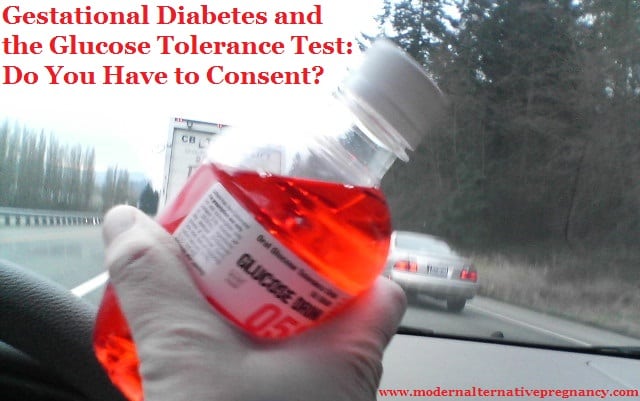
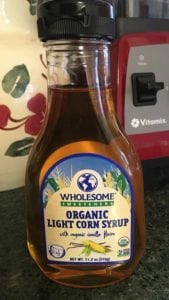
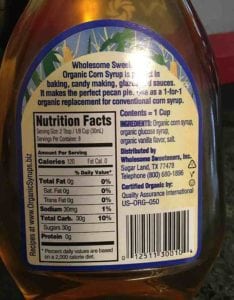
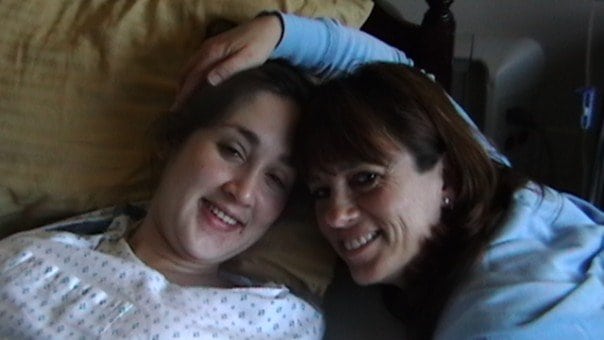


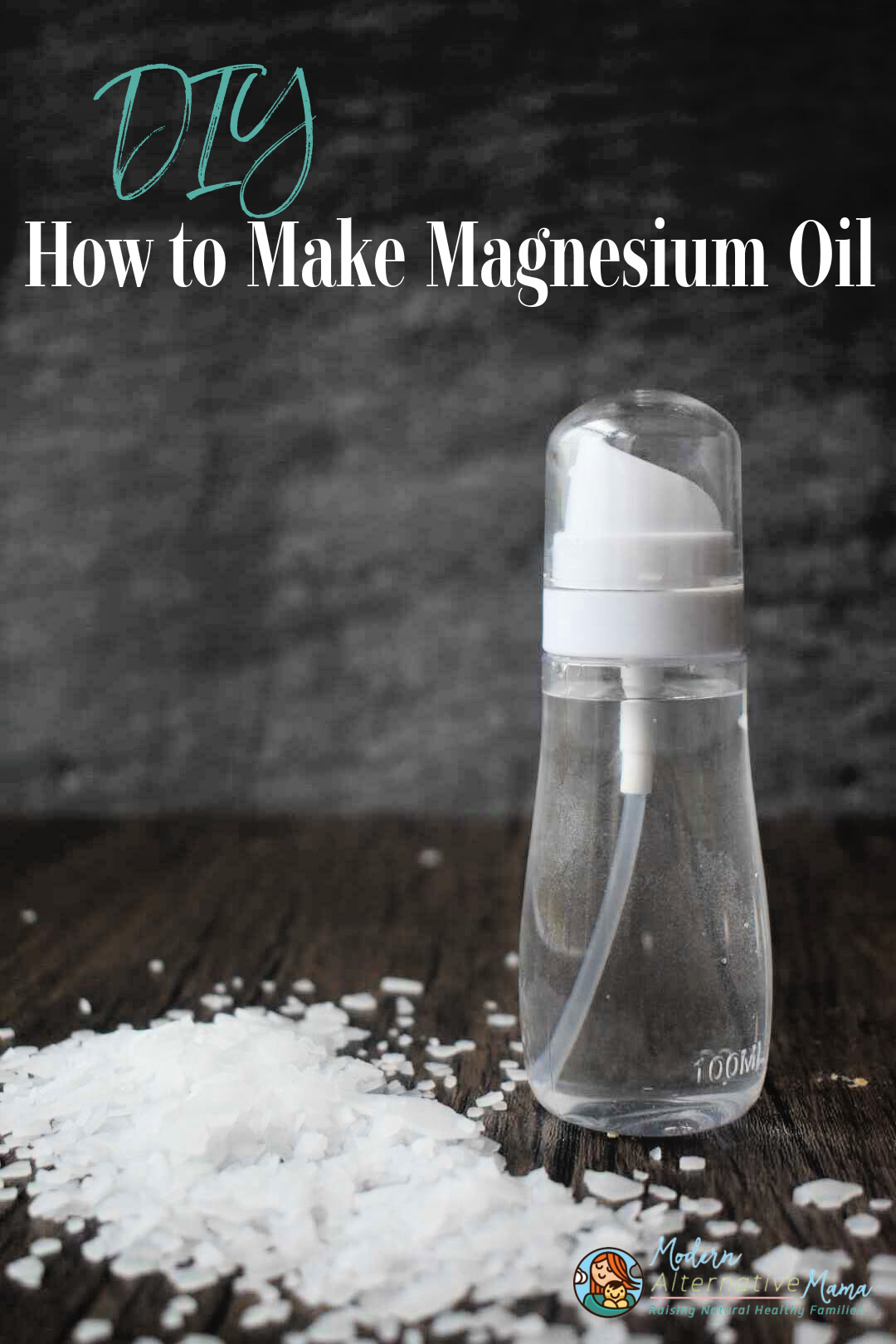

I was pleasantly surprised that my OB is allowing me to do home blood sugar testing instead of the drink. My pregnancy has killed my ability to eat anything sweet – I have to salt my sweet potatoes and add peanut butter to Greek Yogurt – and when I told him how severe my reaction was to sweet (gagging while eating a cherry pie Lara Bar as an emergency breakfast) he consented to just ordering me the testing equipment. I started today – my fasting levels were great, and I’ll do my first post-eating finger stick in 20 minutes.
Oh, and no, I can’t switch providers for this pregnancy anyways so I can’t just switch to a midwife or something. Next one it might be an option but I have to use this provider this time (I live overseas and am in the military…choices are very limited).
I took first test, didn’t pass it, was subject to the longer one, passed it. But that the longer one almost killed me! Just think what could happen if i really had GD. Besides I didn’t know WHAT was in the drink and they don’t bother TO TELL you and of course they didn’t bother to tell you there are plenty of alternatives to it. I’m very conscious what eat or drink, especially when I’m pregnant. When I read the ingredients I was literally horrified, I would never even buy a shampoo with such chemicals. Some may say I exaggerate but that’s my body I should be able to decide what I drink!
I failed my 1 hr test minimally and consented to the 3 hr test. I got very ill and didn’t find out until later why. While my 1 hr reading was still minimally above normal my 3 hr reading was 63, but I didn’t get these results until several hours later after I had driven myself 30+miles home.
It is time for me to have this test with my second pregnancy and I am dreading it and trying to come up with alternatives to discuss with my Dr.
I’m just glad that there’s some science behind my feeling that this test is not 100% reliable. I took my 1 hr test and failed by 2 points and then took the 3 hour test. I was over by 66 points!
While I know I could eat healthier, I’m very conscious about what I eat and the volume in which I eat it. My OB does not seem concerned about the giant disparity between the two test results and I now have to go to a diabetes counselor.
I just can’t believe no one is reconsidering the validity of my results. I have felt nauseated for hours after drinking the glucola – probably cause my body is freaking out that I only have sugar in my body!
I enjoyed reading your article and it definitely made me feel a little better. Thank you!
I took the initial 1 hour test at 28 weeks and the lab lost my results. I went in at 31 weeks to take it again, and she ran the A1C test too. My glucose test came up as 157, but the A1C came up normal. My midwife is now recommending I do the 3 hour test to rule out diabetes. This happened with my last pregnancy too, and it ended up negative. I have no symptoms other than I gain a ton of weight during pregnancy, and have giant babies. I also suffer from overproduction of breast milk after every delivery. I’ve never been diagnosed with GD, and am wondering if I can refuse the 3 hour test this time. The drink is disgusting and not something I would remotely put into my body- especially pregnant body- on purpose. What would you suggest, especially with the normal A1C? Thank you for the article!
This a great article and I wish my midwives had the same common sense. I failed the one hour and was told if I didn’t do the three hour, I couldn’t give birth at their birthing center. They offered no alternatives and reiterated that in order to birth at the birthing center I had to do the test. I have been sick for days with swollen joints and severe insomnia. I haven’t heard yet whether I passed or failed. I had such a healthy diet before the test that I feel even if I have GD, it was already well controlled. They tried to convince me because I had a 7lb 14oz baby I probably had undiagnosed GD in my first pregnancy. Other babies were 6lb12oz and 6lb11oz. Current baby is measuring at 50th percentile. Not large by any means and I lack any other risk factors. In my opinion, the drink/test was not worth it and set me back significantly health wise. I now wish I would have switched providers and found one that allowed glucose monitoring at home which is more accurate anyway!
[…] Gestational Diabetes […]
I have my glucose test appointment coming up here in a few weeks and have decided to either refuse it or maybe call to ask about the alternatives to the drink. Before getting pregnant with our second I’ve cleaned up my diet and have stayed away from the processed foods and drinks. But ended up drinking the orange stuff with my first and could barely get it down it burned my throat. Just not sure if the doctors will have a natural alternative.
I too kind the 1 hour test and it made me so physically sick I broke into a cold sweat and had to go lay down in my car. My results came back and I was 4 points over. They called and asked me to go in and take the 3 hour test and I asked if there was another test they could do that wouldn’t make me so sick. They agreed to allow me to take the random A1C test with no fasting and my numbers came back normal and well below the gestational diabetes number. I can’t understand why they don’t just do this test to begin with. Why would anyone want to subject a pregnant woman to that amount of stress and illness from drinking that sugar. Anyways I will not be doing that 1 hour test in my next pregnancy. I will flat out refuse it. I have a blood sugar monitor that I check daily at home and they can run my A1c levels. I have checked my blood at home on my own everyday since being 4 points over and my blood sugar is always within the normal range. My dr didn’t ask me to do this I just already had the monitor because my husband checks his every once in a while. Never again will I drink that poison. We have to stand up for ourselves because these drs will do anything for more money and less work. I won’t be induced or bullied into a c-section either.
I’m getting my glucose 1-hr screening test done in the morning. It’s my second baby and I really want to completely refuse it but I just feel so pressured to take it. I refuse to drink the drink though and called my doctor to ask for alternatives- she made it sound like there were none except the jelly beans. I’ve done extensive research and knew that there was so it boggles my mind that she would say that. It’s absolutely ridiculous to me that this test is still even done- doesn’t seem accurate or make sense to test true response to sugar. But I decided to go ahead and take it tomorrow with organic jelly beans. I’m usually very up front so it bothers me that I’m not willing to just completely refuse it.
I am 11 weeks now..already concerned about the upcoming GCT during my pregnancy my numbers are close to prediabetes hence I always take care of my my carb intake and reduced it to 5.3..so far I have raised concern to my RN physician and endocrinologist everybody seems to be in the opinion that I cannot escape the GCT as it is part of the protocol..I don understand what is the point in doing this test on ppl who are aware of strict glucose control and why can’t GD be treated with a1 c numbers and fasting sugar